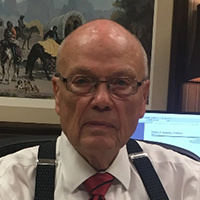Fort Dodge Trusts Lawyer, Kansas, page 5
Sponsored Law Firm
-
 x
x

Click For More Info:
-
Stanley R. Ausemus, Chartered
413 Commercial P.O. Box 1083 Emporia, KS 66801» view mapEstate Quality Legal Support and Counsel
The locally owned Stanley R. Ausemus, Chartered has a mission to provide quality legal support and counsel to its clients.
800-709-0390
Not enough matches for Fort Dodge Trusts lawyer.
Below are all Fort Dodge lawyers.
 Stanley Ausemus Emporia, KS
Stanley Ausemus Emporia, KS
